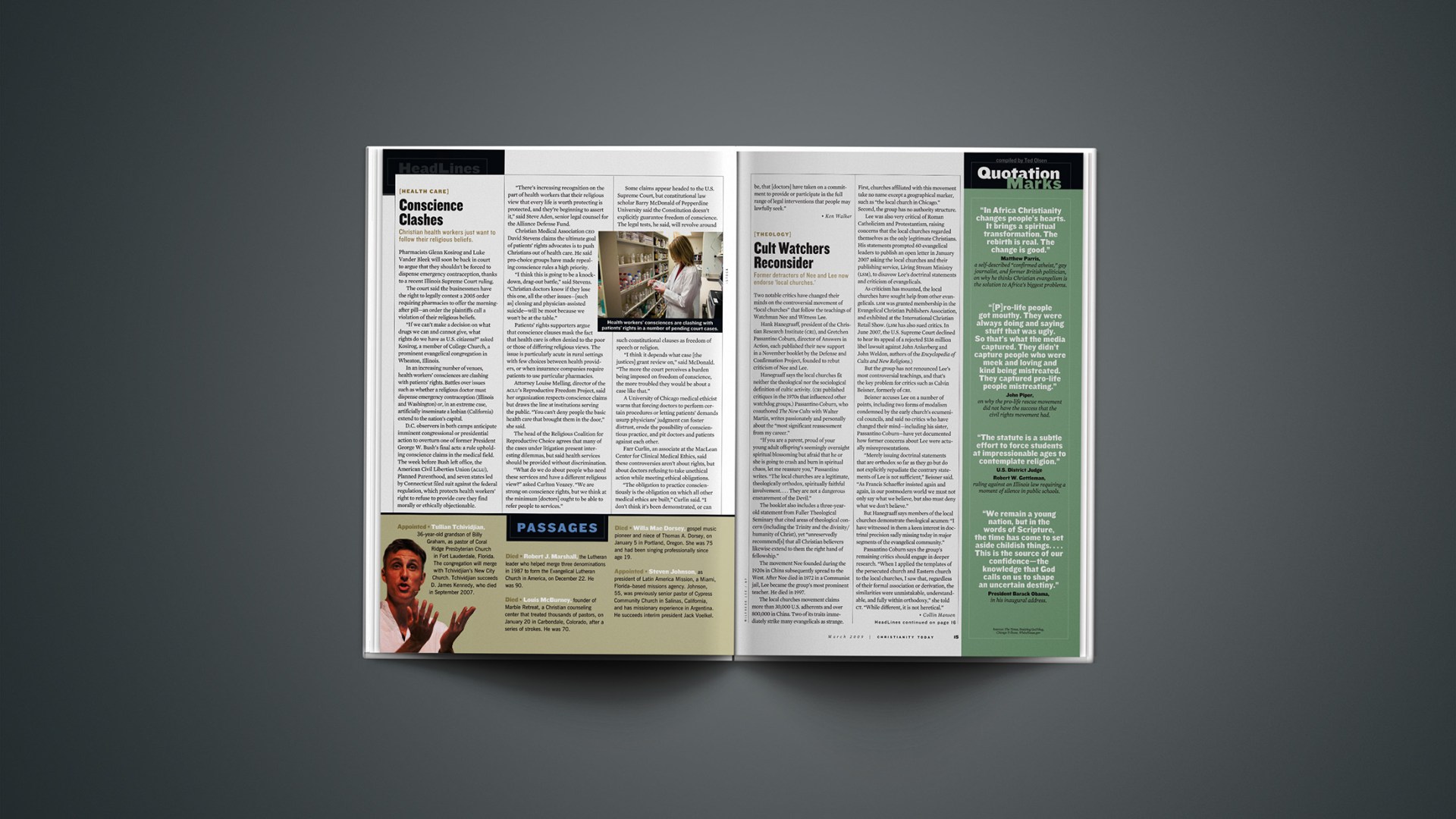Longtime missionaries David and Fiona Fulton were sentenced by a Gambian court to a year of hard labor last December after pleading guilty — in hopes of a lenient sentence — to sedition charges stemming from a wry comment e-mailed to a prayer list.
After nearly a decade of service in the West African Muslim nation, the Fultons, missionaries from an Assemblies of God church in Britain, experienced a string of difficulties, including a disagreement that led them to part with their local church. At about the same time, David reduced his role as an army chaplain and was assaulted by a man he described as a Muslim fundamentalist.
“Now how [a growing extremist element] should be dealt with, I don’t know,” David wrote in an e-mail to supporters. “(I have suggested that we arm the Muslims with sticks and the Christians with machine guns and let them fight it out.) [B]ut seriously, while I will defend myself and my family I don’t believe that I will or should take any part in a physical proactive role against them, that’s the government’s job.”
Someone on the Fultons’ prayer list forwarded the e-mail to Gambian authorities. “This unfortunate comment did not go down well with the authorities, who saw it as incitement,” said Khataza Gondwe, the officer for sub-Saharan Africa at Christian Solidarity Worldwide. The e-mail became the basis for the sedition charges. Other charges have followed.
Gondwe said the Gambian prison system is particularly harsh, and the couple appeared quite weak in court. The Fultons are expected to serve their year-long sentence by doing plantation work and paying an $8,600 fine.
The Fultons are not the only missionaries whose e-mails have been used against them. Wycliffe Bible Translators president Bob Creson said unauthorized use of support letters is a risk for many missionaries.
The Fultons weren’t in danger because of the e-mail per se, said Pete Holzmann, executive director of the International Christian Technologists Association. “This is a people issue more than a technology issue.”
Missionaries can avoid drawing attention to themselves by using common methods — such as Gmail or FedEx — or sending secure messages through encryption or Web anonymizers, but Holzmann said the real risk is what happens after their messages arrive. Prayer letters published on church websites, photos posted on blogs, and stories told in public can all be used against missionaries.
One way missionaries can lessen risk is simply to not be as candid in writing as they would be speaking in their home country.
“You want people praying for the circumstances,” said Creson, but not at the risk of the ministry. Wycliffe and other sending agencies point missionaries to supervisors and other staff when they need to share thoughts too sensitive for writing.
Steve Knight, international communication coordinator at Serving in Mission, said he cautions missionaries to ask themselves how their next-door neighbors would feel about the content of their prayer letters.
Wheaton professor Scott Moreau said most governments are aware of missionaries and are usually less concerned about mentions of God than about stances on politically charged issues — as in the case of the Fultons.
Another good tactic for missionaries is to remind recipients that e-mail content must go no further. Holzmann recommends sending sensitive material in an encrypted e-mail as a pdf with security settings that prevent copying or printing. “It’s easy to break that security system, but they can only break it knowing that they are not respecting your wishes,” he said.
The most important tactic, agreed Holzmann, Creson, and Knight, is for missionaries to live a consistent life in such a way that they are respected and integrated. In Holzmann’s words, “If at all possible — and it is possible in amazing places — live your life and do your ministry in such a way that the local people and the government love you and like what you’re doing.”
Copyright © 2009 Christianity Today. Click for reprint information.
Related Elsewhere:
Christianity Today has more articles on missions & ministry.










